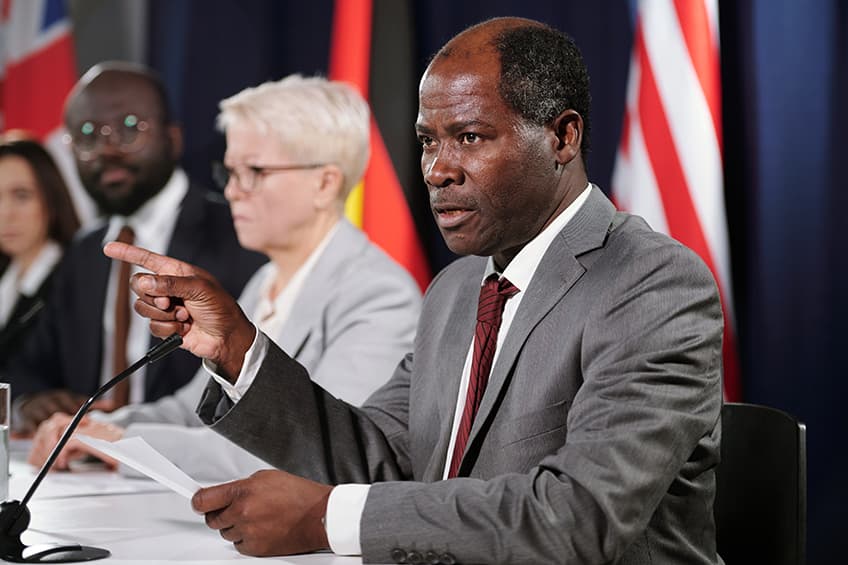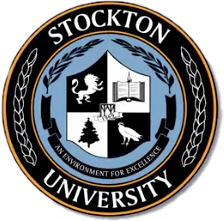Public Policy Certificate

The Public Policy Certificate is for students who wish to study public policy, an interdisciplinary field that combines skills and a base of knowledge from Economics and Political Science to a variety of public policy issues including in health and medicine, environmental and marine science, social sciences, arts and humanities, and more. Public Policy studies is about solving problems, and this Certificate provides students with the necessary training to tackle the issues they care most about.

The Public Policy Certificate at Stockton University offers a comprehensive and interdisciplinary approach to understanding and addressing contemporary societal challenges. This program is designed to equip students with a robust foundation in Economics and Political Science, while also integrating critical topics such as Sustainability, Environmental Studies, Business Law, Health, and Aging. Through this diverse curriculum, students will gain the analytical skills and knowledge necessary to influence and shape public policy effectively.
Ideal for students with or pursuing degrees in Political Science or Economics, the Public Policy Certificate provides valuable insights and practical skills that complement their primary studies. However, the program is open to all students who are passionate about making a positive impact on society through informed policy-making. Join us to explore the dynamic field of public policy and prepare for a career dedicated to public service and societal improvement.
Certificate Leadership:

Lauren Balasco, Ph.D.
Learning Outcomes
The Learning Outcomes in this Certificate consist of the following:
- Policy Analysis Skills: Develop the ability to critically analyze public policies, assess their effectiveness, and propose evidence-based recommendations for improvement.
- Understanding of Policy Frameworks: Gain a thorough understanding of the theoretical frameworks and methodologies used in the formation, implementation, and evaluation of public policies.
- Research Proficiency: Acquire advanced research skills to gather, analyze, and interpret data essential for informed policy decision-making.
- Stakeholder Engagement: Learn to effectively communicate and engage with diverse stakeholders, including government officials, non-governmental organizations, and the public to facilitate collaborative policy development.
- Ethical and Equitable Policy Making: Foster a deep commitment to ethical considerations in policy-making, emphasizing equity, inclusivity, and social justice.
- Interdisciplinary Integration: Integrate knowledge from various disciplines such as economics, sociology, and political science to address complex policy challenges comprehensively.
The Public Policy Certificate at Stockton University offers two distinct paths for students: an econometrics path focused on developing quantitative policy analysis skills, and an advanced policy option for those preferring a non-quantitative approach. Students can enhance their learning experience through the Washington Internship Program (WIP), which may count towards the certificate if policy-related, with up to 4 credits approved as one of the two elective courses.
Additionally, students interested in advanced analytical tools can pursue a Geographic Information Systems (GIS) Certificate through the Environmental Science/Studies Program, preparing them to use GIS technology for analyzing trends and presenting policy data in various sectors.
Curriculum Worksheet
Required Core Courses (12 credits):
- ECON 1200 Macroeconomics (4 cr) (no prerequisite) - offered each semester
- POLS/ECON 3636 Political Economics (prerequisite of ECON 1200 or ECON 1400) OR ECON 3610 Econometrics (4 cr) (prerequisites of ECON 1200 and ECON 1400) - offered annually, schedule TBD
- POLS 2190 Introduction to Public Policy (4 cr) (no prerequisite) - offered annually, schedule TBD
Plus two of any of the following 4-credit courses (8 credits):

- CRIM 2216 HOMELAND SECURITY
- ECON 2104 HEALTH CARE ECONOMICS
- ECON 2200 ECOLOGICAL ECONOMICS
- ECON 2276 URBAN ECONOMICS
- ECON 2625 PERSPECTIVES ON LAW AND ECONOMICS
- ECON 3620 MONEY AND FINANCIAL INSTITUTIONS
- ECON 3690 ECONOMICS OF WORK AND PAY
- ENVL 3310 ENVL PLANNING AND POLICY
- ENVL 3313 NATURAL RESOURCE POLICY & LAW
- ENVL 3316 ENVIRONMENTAL PLANNING & POLICY LAB
- GIS 3686 DISABILITY RIGHTS AROUND THE WORLD
- GIS 4668 POLITICS AND ADVOCACY IN HIGHER EDUCATION
- GSS 2356 DISABILITY RIGHTS AND HISTORY
- GSS 2404 AGING AND THE LAW
- GSS 3109 NATURAL RESOURCES AND POLICY
- GSS 3151 PUBLIC POLICY ISSUES/ANALYSIS
- GSS 3156 MENTAL HEALTH POLICY AND PRACTICE
- GSS 3168 BUSINESS, GOVERNMENT AND SOCIETY
- GSS 3297 HEALTH POLITICS AND POLICY
- GSS 3360 SCHOOLS OF THE FUTURE: EDUCATION IN 21ST CENTURY
- PLAW 3110 THE LEGAL, SOCIAL, AND ETHICAL ENVIRONMENT OF BUSINESS
- PLAW 3630 HEALTH LAW AND POLICY
- POLS 2180 INTRODUCTION TO PUBLIC ADMINISTRATION
- POLS 2245 RACE AND POLITICS
- POLS 2274 U.S. FOREIGN POLICY
- POLS 3345 POLITICS OF IMMIGRATION
- PUBH 2404 HEALTH POLICIES AND ISSUES
- SOWK 3101 HISTORY OF SOCIAL WELFARE POLICY
- SOCI 3260 FOOD ACCESS AND SOCIAL POLICY
- SUST 3313 ENVIRONMENTAL POLICY/ LAW
- SUST 3315 NATURAL RESOURCES ENGINEERING AND POLICY
- SUST 3351 POLICY PRACTICUM
* Other courses may be added or substituted with permission of preceptor.

Dr. Lauren Balasco

Dr. Ramya Devan, Ph.D.

Dr. Tina Zappile

Ron S. Hutchison
The following Career Data is based on a degree in Economics or Political Science in addition to this Public Policy Certificate.


